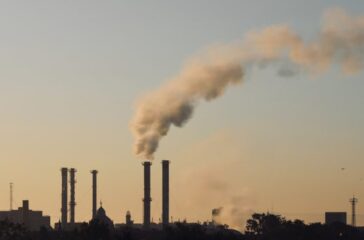EPA scores enforcement wins, losses in 2023; announces funding for vulnerable communities
By Shannon Kelleher
The US Environmental Protection Agency (EPA) scored both wins and losses in its enforcement of environmental laws for 2023, stepping up fines for polluters and on-site inspections but cleaning up fewer pollutants than it has in a decade, according to the agency’s annual enforcement and compliance report.
The agency said Monday that it had required polluters to pay more than $704 million in fines, penalties, and restitutions this year, a tally significantly higher than in 2022. However, the agency’s enforcement actions only led facilities to reduce, treat or eliminate about 74 million pounds of pollutants – about 450 million pounds less than in 2015, and the smallest amount in at least a decade.
The EPA said a focus of its work was in communities facing environmental justice concerns; the agency conducted 60% of its on-site inspections in 2023 in such communities, surpassing a goal it had set to achieve by 2026.
“While our work is not complete, EPA’s revitalized enforcement program is making a positive difference in communities across America, particularly for people living in underserved and overburdened communities that for too long have borne the brunt of pollution,” David Uhlmann, assistant administrator for EPA’s Office of Enforcement and Compliance Assurance, said in a press release.
In other high points for the year, the agency said its public water system inspections resulted in 150 cases to correct violations – a more than 300% increase over the average for the last decade, the agency said.
And, after losing about 950 jobs following a decade of budget cuts, the agency is now hiring about 300 new positions to boost its enforcement program, the EPA said.
“We’re pleased to see the Environmental Protection Agency staffing up and ramping up enforcement efforts to hold polluters accountable and protect some of our nation’s most vulnerable communities,” said Coby Dolan, the legislative director of the Access to Justice Program at the nonprofit Earthjustice.
The agency needs to do more, however, to address disparate harms faced by frontline communities burdened by pollution, he said.
 EWG
EWG